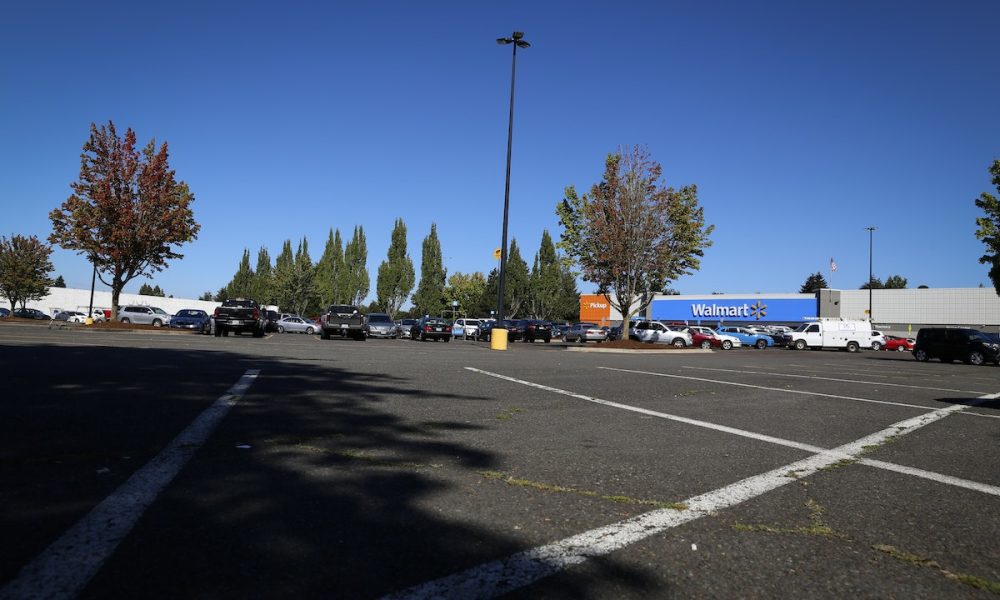The City of Salem is considering eliminating parking mandates that dictate the number of parking spaces required for certain new buildings.
If approved, the move would mean all new developments, citywide, would not be required to create off-street parking spaces.
Current city code requires that restaurants in certain areas, for instance, provide one parking space for every 250 square feet of business space and a hardware store needs one space for every 900 square feet.
The state is asking the city to reform its parking standards by June 30 as part of a larger plan to reduce greenhouse gas emissions by encouraging walking and public transportation.
The state rules align with the city’s climate action plan, according to the December proposal. The city Climate Action Committee recommended the change in November.
The city will be hosting a drop-in informational session with city planners on Tuesday, Jan. 31, from 4:30 p.m. to 6 p.m. The event will be in the Anderson Room at the Salem Public Library, 585 Liberty St. S.E. Refreshments will be provided.
The city staff is proposing that the Salem City Council eliminate all minimum off-street parking requirements throughout the city, in accordance with state requirements.
Such parking rules have already not been in place for certain Salem properties, following a series of changes dating to 2017.
Minimum parking requirements already are gone from downtown. Instead, money collected by a city parking district supports parking garages. Citywide, no parking is required for room and board facilities, an additional dwelling on a single-family property or for single-family houses divided into multiple units.
The requirements also don’t apply to some apartments, shelters, within a quarter mile of primary Cherriots routes or in select mixed-use zones, according to the city code.
Outside of those exemptions, most businesses, health care, schools and services in Salem are required to provide set amounts of parking.
The Oregon Department of Land Conservation and Development’s new rules expand these existing exemptions – including removing minimums within half a mile of primary Cherriots routes, and at childcare centers and for affordable housing.
The department’s rules apply to Oregon’s eight metropolitan areas, and Clackamas, Marion and Washington counties.
In a November summary, the department stated that parking mandates subsidize car ownership, shifting some of the costs to housing and businesses.
“Providing 300 square feet of parking lot for each car that wants a parking spot is a significant cost – in the thousands, and often tens of thousands, of dollars,” the department said. “Because of the cookie-cutter approach of mandates, parking is often over-built, adding unnecessary costs, while pushing apart buildings and making areas less walkable. That means more driving, and more pollution.”
The department wants to allow landowners and developers to determine the parking needed rather than the city.
On Dec. 28, the city removed minimum off-street parking requirements for certain uses including shelters, residential care facilities and affordable housing and in places near 15-minute transit locations, according to the proposal.
It also has already required electric vehicle charging be installed in 40% of the parking spaces in new multifamily or mixed-use buildings.
If the city chooses not to eliminate all minimum off-street parking requirements, it would have a more complicated road ahead.
Its options include a combination of limiting free parking, requiring that multifamily housings charge for parking, and taxing commercial parking lot revenue.
Contact reporter Abbey McDonald: [email protected] or 503-704-0355.
SUBSCRIBE TO GET SALEM NEWS – We report on your community with care and depth, fairness and accuracy. Get local news that matters to you. Subscribe today to get our daily newsletters and more. Click I want to subscribe!
Abbey McDonald joined the Salem Reporter in 2022. She previously worked as the business reporter at The Astorian, where she covered labor issues, health care and social services. A University of Oregon grad, she has also reported for the Malheur Enterprise, The News-Review and Willamette Week.









